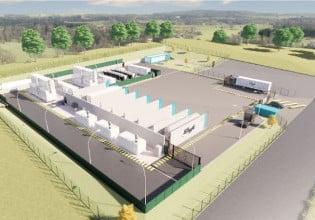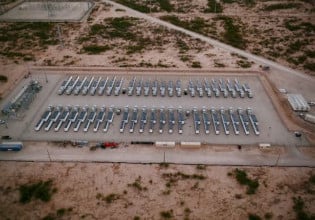Bad Battery Tech: What EV Recalls Mean for the Industry
What does a massive recall of half a million electric vehicles worldwide mean for EVs?
Hyundai Motor Group is recalling a combined 147,110 Hyundai and Kia electric vehicles (EVs) in North America to replace a faulty integrated charging control unit (ICCU)—the device that keeps the 12-volt control battery on the vehicle charged. In addition to the vehicles affected in North America, the recall will include 170,000 EVs in Korea and is expected to hit more than 500,000, including European and other overseas markets.
Hyundai Ioniq 6. Image used courtesy of Hyundai
Recalled EVs: Hyundai, Kia, Genesis
Recalled Hyundai vehicles (including several from the upscale Genesis brand) were built between October 2021 and March 2024, while affected Kia vehicles were produced between November 2021 and February 2024.
The recalled vehicles are:
- 2023-2024 Genesis GV60
- 2023-2024 Genesis GV70
- 2023-2024 Gensis GV80
- 2022, 2023 and 2024 Hyundai Ioniq 5
- 2023-2024 Hyundai Ioniq 6
- 2022, 2023, and 2024 Kia EV6
According to the National Highway Traffic Safety Administration (NHTSA), the ICCU can become damaged, which will cause the onboard 12-volt battery powering the vehicle control systems to stop charging. The EV will then lose drive power. Dealers will replace the ICCU and its fuse and update the vehicle software.
Hyundai and Kia have been aware of ICCU problems and provided free repairs and related software updates last year. However, the problem has become serious enough to warrant a voluntary recall.
The Root of the Recall
It isn’t Hyundai’s first major EV recall. In 2021, Hyundai Motor America conducted a safety recall in the United States and Canada to address the potential for lithium-ion battery fires in certain model year 2019-2020 Kona EVs. The fault was traced to a folded anode (negative electrode) tab in battery cells produced by LG Energy Solution at its Nanjing, China plant and affected 76,000 Kona models produced between 2018 and 2020.
EVs have been the subject of various recalls in the past. In 2021, Chevrolet recalled nearly 142,000 Bolt EVs to replace the lithium-ion battery produced by LG Energy Solution for the same reason as the Kona EV recall. Late last year, Tesla recalled nearly 2 million cars in the U.S. to limit the use of its autopilot feature after the NHTSA said it could be misused and give drivers a false sense of security while in operation.
Fire caused by faulty Chevy Volt battery in 2011. Image used courtesy of NHTSA
EV Sales Rising Despite Recalls
The recall of an EV model tends to make headlines because of concerns that demand for electric vehicles is dwindling. However, EV sales in the U.S. in 2023 were 7.2 percent, up from 5.5 percent in 2022. The second half of 2023 saw increases from 7.9 percent in Q3 to 8.1 percent of the market in Q4. Worldwide, EVs accounted for 16 percent of the new car market. While the recall of a vehicle is never good news, an EV recall of an EV does not affect the EV market as a whole.








